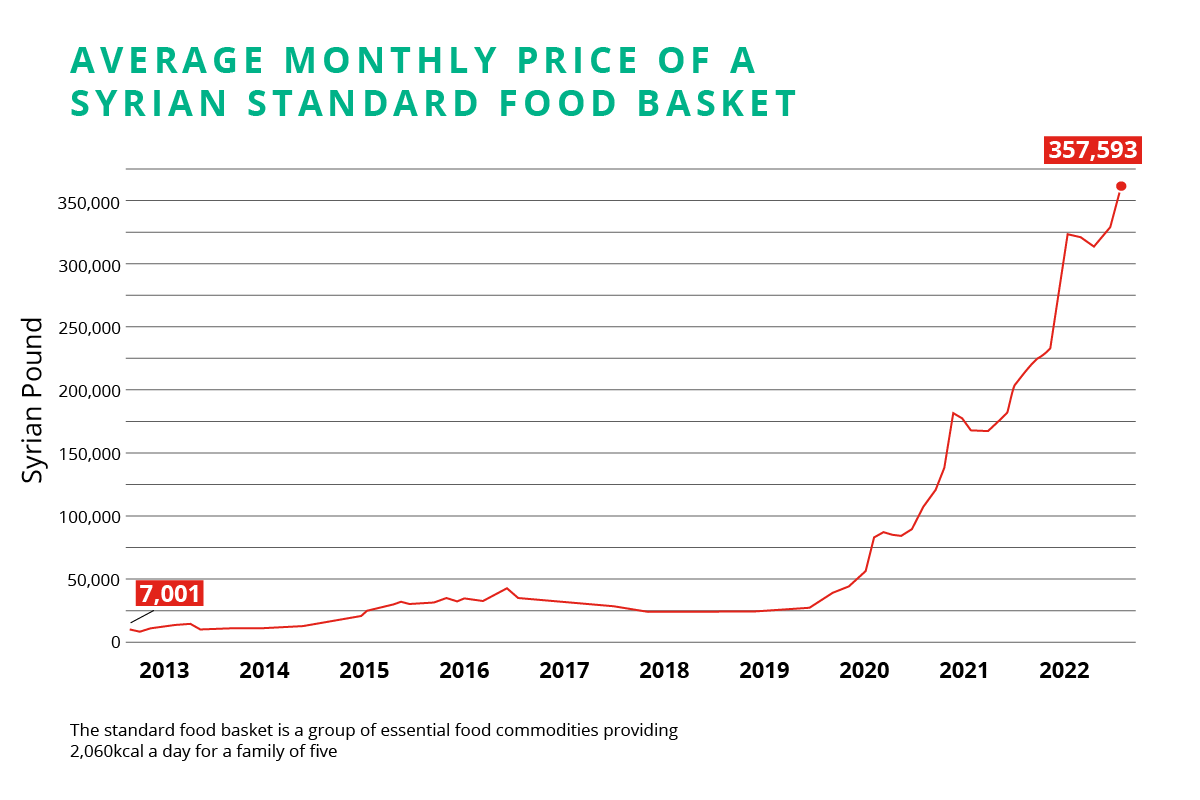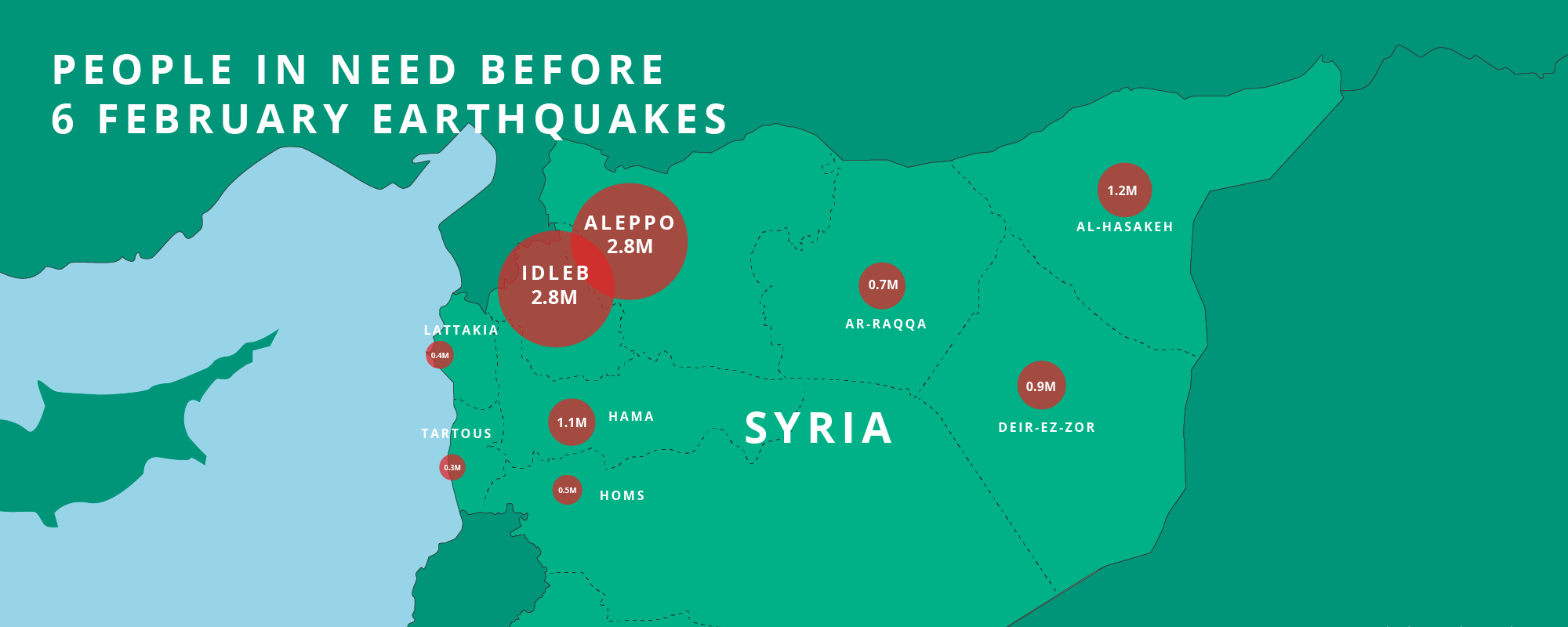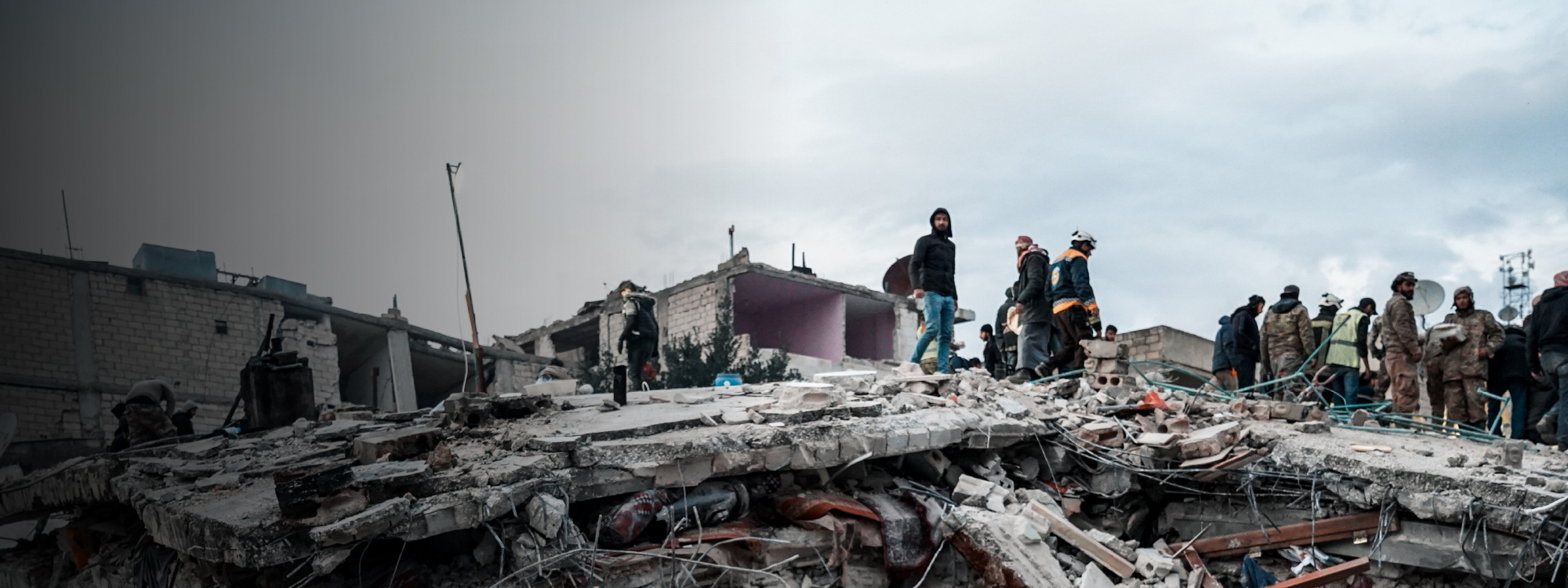Syria is a nation being pushed to its limits – 12 years of conflict has left the country in ruins.
Almost 90% of the total population lives under the poverty line, basic human services and infrastructure are collapsing, and it has the largest number of Internally Displaced People (IDPs) in the world. This is all before two devastating earthquakes rocked the country on 6 February, leaving thousands without a place to call home.
Read on to learn why this disaster could not have hit a more vulnerable place.
Ongoing conflict
Syria has been at war since 2011. Today, it remains the third least peaceful country in the world.
Ongoing hostilities continue to threaten the lives of civilians, especially in the north-west where clashes are regularly reported. In November, shelling, airstrikes and clashes destroyed the homes of hundreds of families in displacement camps in the northwest and further.
The continued fighting and insecurity in the country is significantly hampering humanitarian efforts and creates even more challenges when getting aid into Syria.
Financial Crisis
The Syrian economy is in crisis, with more people falling into poverty, the value of the Syrian pound deflating, and inflation rates reaching record level.
It’s estimated that 85% of families are unable to meet their basic needs, despite almost all of them having a head of the household who is fully employed. As an example, a food basket that cost around 7,000 Syrian Pounds in 2013 now costs a staggering 357,000 Syrian Pounds.

Collapsed infrastructure:
Across the country, basic services and critical infrastructure are on the brink of collapse.
The impact on the health system has been immense – 70% of health workers have fled the country and only 59% of hospitals are fully functioning.
Frequent power outages and electrical shortages means that many hospitals rely on backup generators to operate. Three-quarters of the population have less than 8 hours of electricity a day.
Water treatment continues to degrade, and roughly half the population relies on unsafe water sources. This led to a massive cholera outbreak in September, which continues to spread.
Impact of the earthquakes

In Syria, 8.8 million people have been affected by the earthquakes that hit in February. But the damage is worse in the northwest where 4.2 million people have been affected in Aleppo, and 3 million people have been affected in Idlib.
More than 8,900 buildings have been completely or partially destroyed, leaving at least 11,000 people without a place to call home. Many of these families will have escaped the trauma of war, only to be displaced once again.
To make matters worse, freezing temperatures are presenting an immediate risk to life for people who are too afraid to return home or have no home to go back to.
ShelterBox is responding. Click below to donate or learn more about our response

